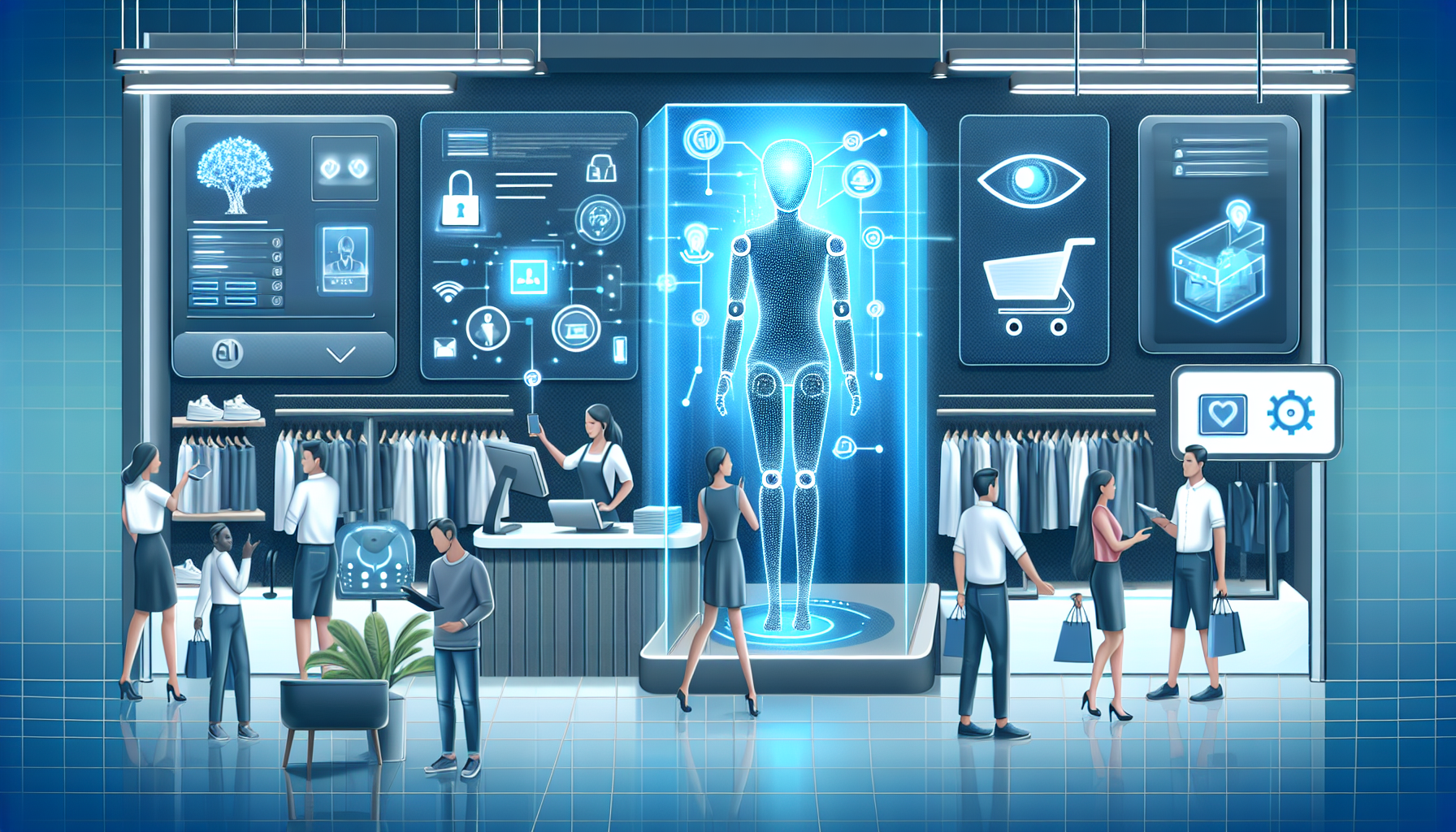Understanding AI in Retail
Artificial Intelligence (AI) is revolutionizing the retail landscape, providing businesses with powerful tools to enhance personalization and customer engagement. Leveraging AI technologies allows retailers to analyze vast amounts of data to optimize customer interactions and improve shopping experiences.
Enhanced Personalization
-
Tailored Recommendations
AI algorithms analyze customer behavior, preferences, and purchase history to provide personalized product recommendations. Retail giants such as Amazon utilize collaborative filtering techniques to suggest items based on similar customer profiles, leading to increased sales conversions. -
Dynamic Pricing Strategies
AI can analyze market trends, competitor pricing, and customer demand to optimize pricing strategies. Retailers can adjust prices in real-time based on personal shopping behavior and market conditions, allowing for both competitive pricing and increased profit margins. -
Customized Marketing Campaigns
With AI, retailers can create targeted marketing campaigns that resonate with individual customer segments. Machine learning models help identify the most effective channels and messages for different demographics, thereby increasing engagement and purchase likelihood. -
Behavioral Analytics
AI can track how customers interact with websites and physical stores, providing insights into customer preferences and buying patterns. By understanding these behaviors, retailers can tailor not just the products offered but also the shopping experience itself. -
Predictive Analytics
Predictive analytics leverages data from prior purchases and customer interactions to foresee future buying behaviors. By understanding trends, retailers can promote items that are likely to be of interest to the consumer, thus enhancing the shopping experience.
Improved Customer Engagement
-
Chatbots and Virtual Assistants
AI-powered chatbots serve as 24/7 customer service agents, providing instantaneous responses to inquiries. As they become more sophisticated, these bots can offer personalized product recommendations based on customer preferences, thereby improving engagement and satisfaction. -
Customer Feedback Analysis
Through Natural Language Processing (NLP), AI can analyze customer reviews and feedback at scale. Retailers can identify common themes and sentiments, allowing for targeted improvements in products and services based on customer desires and grievances. -
Interactive Shopping Experiences
AI enables the creation of immersive experiences such as virtual fitting rooms and augmented reality tools. These technologies allow customers to visualize products more realistically, enhancing engagement and reducing return rates. -
Loyalty Programs and Incentives
AI facilitates the design of personalized loyalty programs, rewarding customers based on their shopping behavior and preferences. By tailoring incentives and promotions, retailers can significantly boost customer retention and foster brand loyalty. -
Value-Added Content
Retailers can use AI to deliver personalized content, such as how-to guides, style tips, or product videos, that aligns with individual customer interests. This not only engages customers but also positions the brand as a valuable resource.
Operational Efficiency
-
Inventory Management
AI systems can predict demand more accurately by analyzing historical sales data and current market trends. This leads to improved inventory management, reducing overstock and stockouts while ensuring that popular items are always available. -
Supply Chain Optimization
AI can enhance supply chain logistics, predicting delays and optimizing routes for deliveries. By improving efficiency, retailers can reduce costs and ensure a faster delivery experience for customers. -
Fraud Detection and Prevention
AI algorithms can identify unusual patterns in transaction data that may indicate fraudulent activity. By automating this process, retailers improve security while minimizing the impact on genuine customers, thus enhancing trust.
Future of AI in Retail
-
Hyper-Personalization
As AI technology continues to evolve, the potential for hyper-personalization will increase. By integrating data from multiple touchpoints, retailers can create an even more seamless shopping experience that feels highly individualized to every customer. -
Voice Shopping
With the rise of smart speakers and voice recognition technology, voice shopping is set to become more prevalent. AI-driven voice assistants will enable consumers to shop hands-free, making the purchasing process more convenient and engaging. -
Sustainability Insights
AI analytics can help retailers assess their environmental impact and optimize operations for sustainability. By providing insights into customer preferences for eco-friendly products, businesses can better engage with environmentally conscious consumers. -
Enhanced Customer Insights with IoT
The Internet of Things (IoT) devices will provide retailers with more granular customer insights, enabling them to adjust strategies dynamically. The integration of AI with IoT will enhance personalization capabilities, making customer engagement more relevant and timely.
Conclusion
AI is not just an emerging trend; it is becoming a foundational aspect of the retail industry. Through enhanced personalization and improved customer engagement, AI empowers retailers to create a shopping experience that resonates with individual customers, ultimately driving sales and fostering loyalty. The ongoing advancements in AI technology hold immense potential for transforming retail, paving the way for more innovative, customer-centric businesses.


